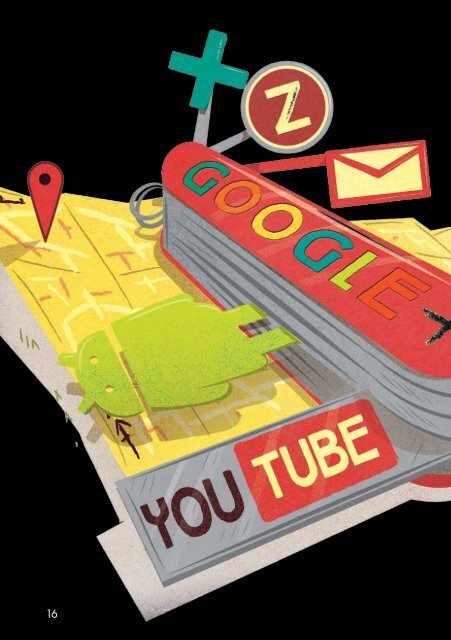IntroductIon - MEC
IntroductIon - MEC
IntroductIon - MEC
You also want an ePaper? Increase the reach of your titles
YUMPU automatically turns print PDFs into web optimized ePapers that Google loves.
“dIdn’t you used<br />
to be A seArch<br />
engIne?”<br />
JitKa PetricKova<br />
ManaGinG Partner, diGital leader, WeSt coaSt<br />
jitka.petrickova@mecglobal.com<br />
Remember when Google used to be just a<br />
search engine? That seems almost quaint now.<br />
Over the last few years, and especially in 2011,<br />
Google made significant investments to continue<br />
its expansion beyond search and into mobile,<br />
social, products and patents in efforts to<br />
fight off competitive action from its rivals<br />
(and regain its position as the top online<br />
destination).<br />
Google remained true to their<br />
strategy of simplicity in 2011.<br />
Larry Page thinks about their<br />
products in three separate<br />
categories: 1. Search and<br />
Ad business, 2. YouTube,<br />
Android and Chrome as<br />
products enjoying high<br />
consumer success<br />
and 3. new products<br />
which are reshaping the digital<br />
landscape, including Google+.<br />
While search and ads continue to be the core<br />
revenue driver, Google’s Chrome browser<br />
enjoyed 84% year-on-year growth in 2011,<br />
driving many more users to Google products<br />
and ads. Both Gmail and YouTube consumer<br />
experiences were improved, creating compelling<br />
destinations for users, and the company ended<br />
the year announcing their next steps in a<br />
determined shift to quality, long-form content<br />
with the announcement of the YouTube Original<br />
Content initiative.<br />
The biggest – and potentially most controversial<br />
– splash however was made with the launch<br />
of Google+, a social product to compete with<br />
Facebook, which also experienced rapid growth<br />
to 49 million* users by the end of the year with<br />
an ambition to reach 400 million users by the<br />
end of 2012. The expected deep integration of<br />
Google+ with search and other products will<br />
undoubtedly cause more controversy this year,<br />
but is key to Google’s strategy moving forward.<br />
In 2011, Android OS celebrated its ten billionth<br />
Android app download and the Android Market<br />
jumped in four months from 300,000 to 400,000<br />
apps, compared to the seven months it took for<br />
Apple. Google protected and added flexibility<br />
to Android by buying thousands of patents<br />
from IBM and attempting to acquire Motorola<br />
Mobility (a move that may also help the digital<br />
giant control its own destiny when it comes to<br />
mobile payments and wallets).<br />
Google also zeroed in on local, evolving its<br />
maps and offers products as well as acquiring<br />
Zagat. Users can now find detailed information,<br />
directions, links to review and more for millions of<br />
local queries like shops, restaurants, parks and<br />
landmarks on both the web and mobile.<br />
With the above funnels in place, 155 million<br />
people find themselves on Google each month<br />
and 140 million watch YouTube videos each<br />
month (according to Quantcast). Google’s<br />
transformation from search engine to destination<br />
with a potential to optimize users experience<br />
across all channels is well underway.<br />
*source: HitWise<br />
16 17




